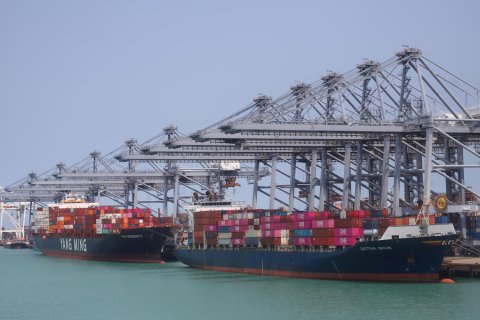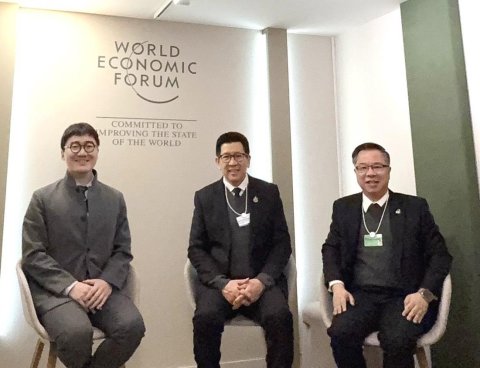Showing 1 - 10 of 7,346
Parks chief defends elephant relocation protocols
Online Reporters, Published on 12/02/2026
» The head of the Department of National Parks, Wildlife and Plant Conservation on Thursday defended his agency’s handling of a fatal elephant relocation operation, while protesters continued to demand his resignation.
Extravagant opera costumes up for auction
AFP, Published on 12/02/2026
» GENEVA - Sandra Delpierre’s fingers linger on a long blue and white fur coat and graze a pair of angel wings as she winds past thousands of colourful costumes used in opera performances.
Protest over failed elephant relocation
News, Apinya Wipatayotin, Published on 12/02/2026
» A group of wildlife activists gathered on Wednesday at the Department of National Parks, Wildlife and Plant Conservation (DNP), demanding its chief resign after the sudden death of a wild elephant during a failed relocation attempt by the department.
C&G adding 2 Bangkok waste power plants
Business, Yuthana Praiwan, Published on 12/02/2026
» Bangkok is set to strengthen its waste management system with two new waste-to-energy power plants being developed by C&G Environmental Protection (Thailand).
Public warned of stray hazardous containers after cargo ship sinking in Phuket
Online Reporters, Published on 11/02/2026
» The public are warned not to approach any stray containers spotted in the sea or on the beach, particularly in Phuket, after the Panama-flagged Sealloyd Arc cargo ship sank near the island with more than 200 containers, including those containing hazardous materials.
Japan restarts world's biggest nuclear plant, again
AFP, Published on 09/02/2026
» TOKYO - Japan switched on the world's biggest nuclear power plant again on Monday, its operator said, after an earlier attempt was quickly suspended due to a minor glitch.
Carbon rules reshape Thai business as CBAM looms
Business, Yuthana Praiwan, Published on 09/02/2026
» The European Union's Carbon Border Adjustment Mechanism (CBAM) is sending ripples of concern throughout global trade, unsettling exporters of certain products while raising broader questions about its long‑term impact on industries not yet covered by the measure.
DNP seeks more time to move 3 wild elephants
News, Apinya Wipatayotin, Published on 08/02/2026
» The Department of National Parks, Wildlife and Plant Conservation (DNP) has asked the Khon Kaen Administrative Court for additional time to relocate three wild elephants following the death of a jumbo during a recent transfer, citing safety concerns.
US ‘pressing Ukraine and Russia to end war by June’
AFP, Published on 07/02/2026
» KYIV - The United States wants Ukraine and Russia to end their four-year war by June, and has offered to host talks between the two sides in Florida next week, Ukrainian President Volodymyr Zelensky said on Saturday.
Chinese tech firm chooses Thailand for overseas plant
Wichit Chantanusornsiri, Published on 07/02/2026
» Hesai Technology, a global leader in light detection and ranging (LiDAR) solutions and intelligent vehicle navigation systems, says Thailand will host its first manufacturing base outside China.













